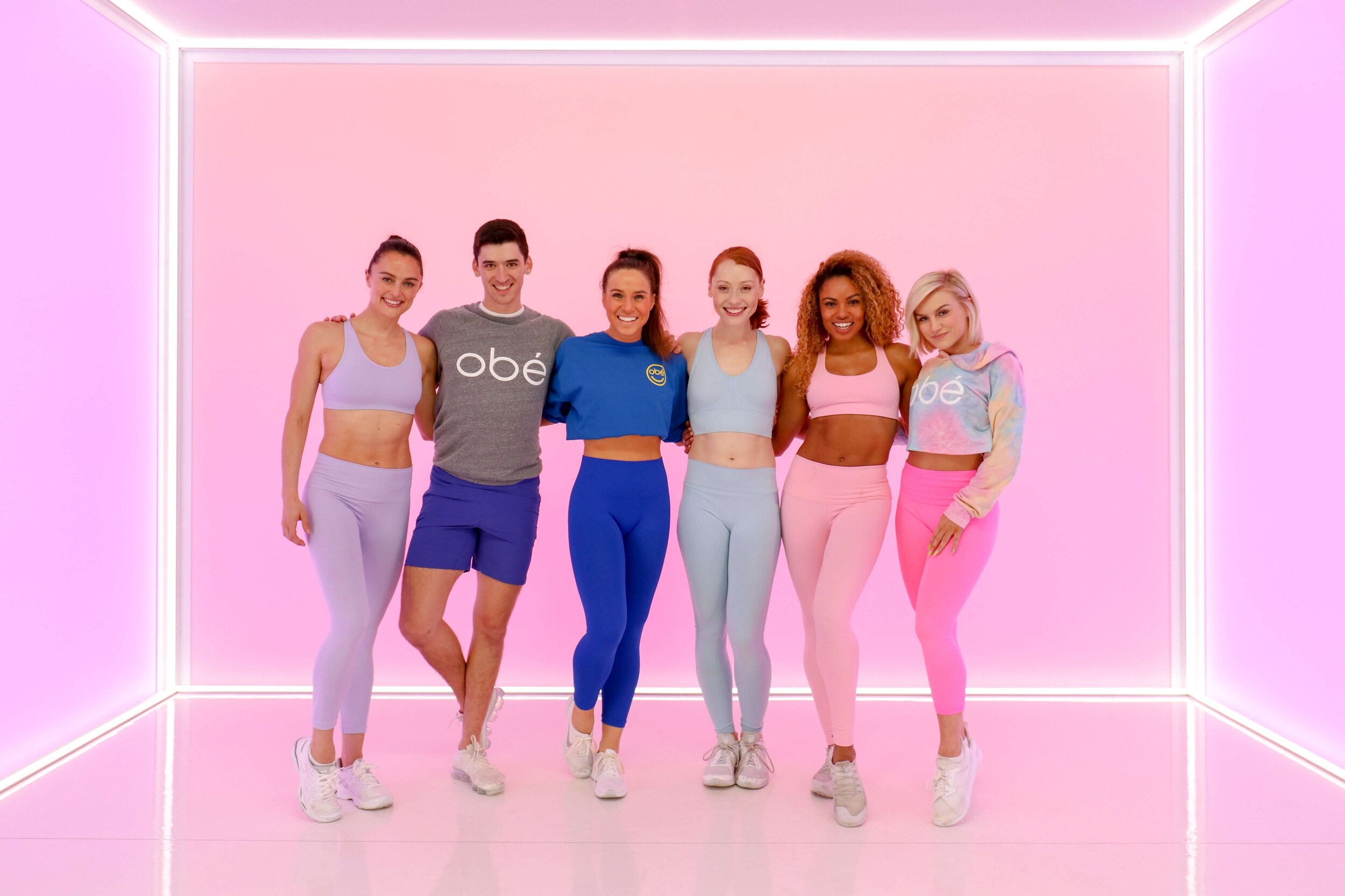
Adweek
In the Time of Coronavirus, Online Fitness Platform Obé Has Its Moment
Original article can be found here or in the July 2020 print edition of Adweek
By Diana Pearl. Published on June 8, 2020.
Since mid-March, fitness studios and gyms across the country have been forced to shutter their doors as people have had to bring their exercise routines home with them due to Covid-19.
While businesses like Crunch Fitness, Orangetheory Fitness and SoulCycle have pivoted their businesses, other platforms have had a distinct advantage in the stay-at-home shift. Online exercise platform Obé Fitness, brainchild of co-founders and co-chief executives Mark Mullett and Ashley Mills, was well-positioned to weather the ongoing Covid-19 pandemic, but even Obé has had to adapt.
Fewer people can be present in the studio where workouts are taped, and with the influx of new members, they’re catering to a wider demographic than ever before. These changes are further evidence that even for these brands, the Covid-19 pandemic has mandated change and agility, all while staying true to their brand’s identity.
“Those that are doing it in a way that makes sense with who that company is and their brand promise, then it’s going to make sense and it’s going to be something that we accept,” said Jenna Isken, associate director of digital experience at brand strategy firm Siegel+Gale.
Working with a larger audience
Mullett and Mills are two former CAA agents who sought to bring the spirit of entertainment to the world of online fitness. They founded Obé, an online platform that provides subscribers with live fitness classes and a library of on-demand content of everything from Pilates to kickboxing, to fill that gap. At $27 per month (or $199 annually), it’s cheaper than biggest competitor Peloton, which is $39 for a subscription, with an increased price tag for those who want to use its cycling offerings.
Pre-pandemic, Obé’s user base was largely made up of women 25-54. While that still remains its largest segment, Mills said that in the wake of Covid-19, the demographic of its subscribers has gotten much more diverse. More men have joined the platform, and the age range has broadened as well, with month-over-month growth at 70% in March and April, though the firm wouldn’t expand on exact figures of what sales were before and after the pandemic.
With that shake-up, Mills said Obé is producing content in front of its paywall specifically for new audiences, such as children and seniors. Knowing that stress levels are increasing, Obé has also incorporated guided meditation videos, a first for the platform.
Recognizing that people are working out with family members means a wider audience is key, not only for attracting new users but turning them into loyal customers.
“There’s no real delineation between family time and personal time anymore,” said Mark Pytlik, CEO of global creative firm Stink Studios. “It’s smart for Obé to offer programming that acknowledges this reality.”
The company has been deemed an essential business, so it’s still operating its studio. Mills said that Obé decreased the number of people present during filming and everyone is wearing masks, maintaining distance and scrubbing surfaces. For talent that has left New York where Obé is headquartered, the company sent them equipment to film at home.
“We’ve been able to really seamlessly keep the production going and keep it afloat,” said Mills.
Mullett added that a major benefit of being able to make this transition work is that Obé can keep paying its staff in a time when so many of its competitors have furloughed or laid off employees.
Getting people to embrace an old favorite
What Obé does isn’t a new phenomenon, and even before Covid-19 gripped the world, Mills said the brand was already seeing steady growth and a willingness to embrace at-home workouts.
“People have been working at home forever; my mom was working out with Jane Fonda when I was a kid,” said Mills.
And with so many fitness alternatives, from YouTube videos to the offerings from studios that have pivoted to online content, Mullett said that maintaining a certain quality to Obé’s content is paramount. There’s also a pick-and-choose method to its content that gives users more options.
Obé has also rolled out new partnerships, like one with HBO Max, called “Week of So Much More.” It will celebrate the streaming platform’s launch with classes inspired by its shows, such as Sex and the City and Sesame Street.
It’s this premium element that Mullett and Mills believe will keep the larger audience around even after studios and gyms open their doors again. Now that consumers have experienced Obé’s “enter-train-ment,” they’ll want to keep it as a part of their “fitness buffet.”
“Our mission is around getting people moving,” said Mills. “So we’ve really been focused on getting in front of people so they know that we exist and that there is a haven and a community for them.”
